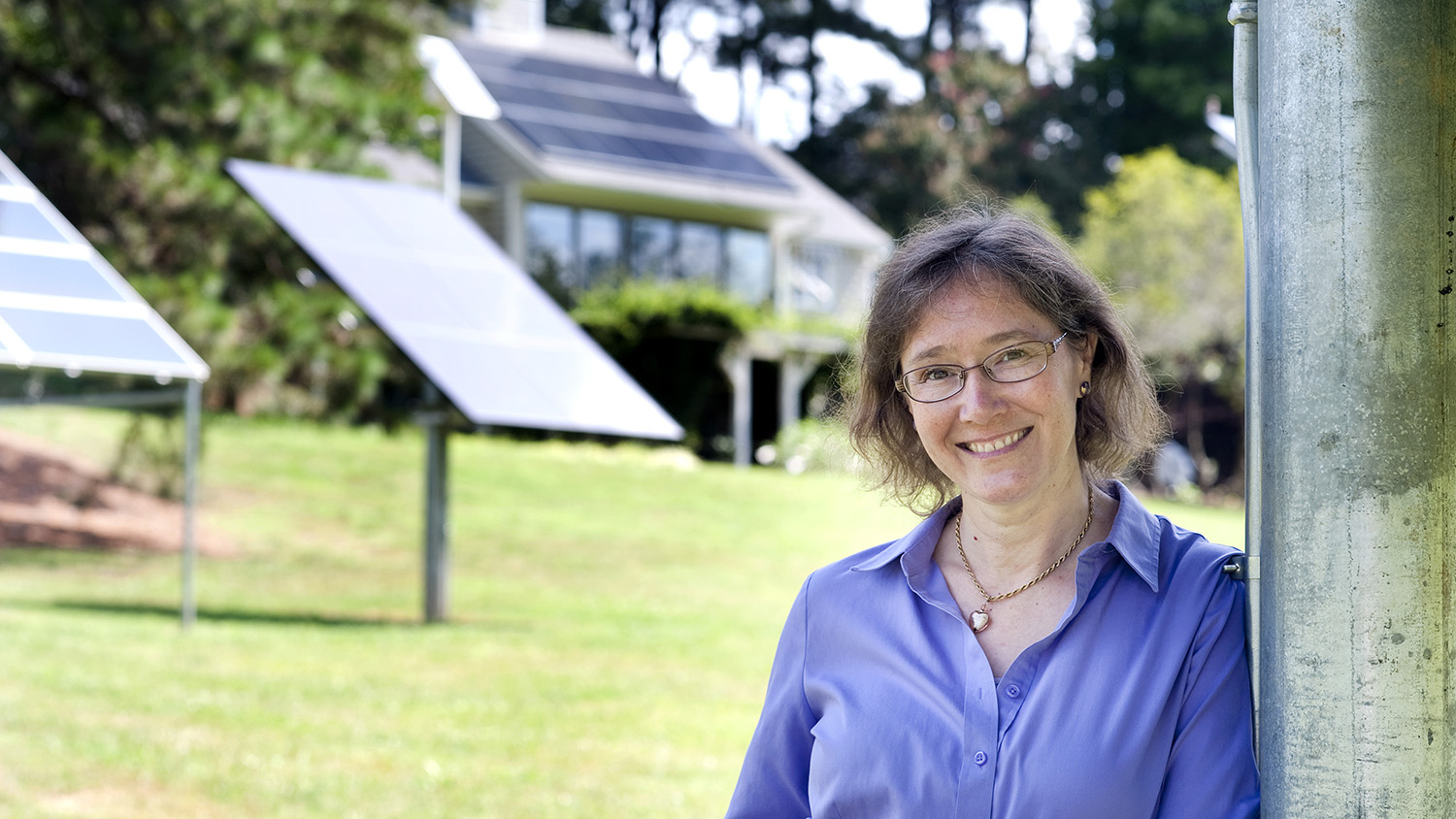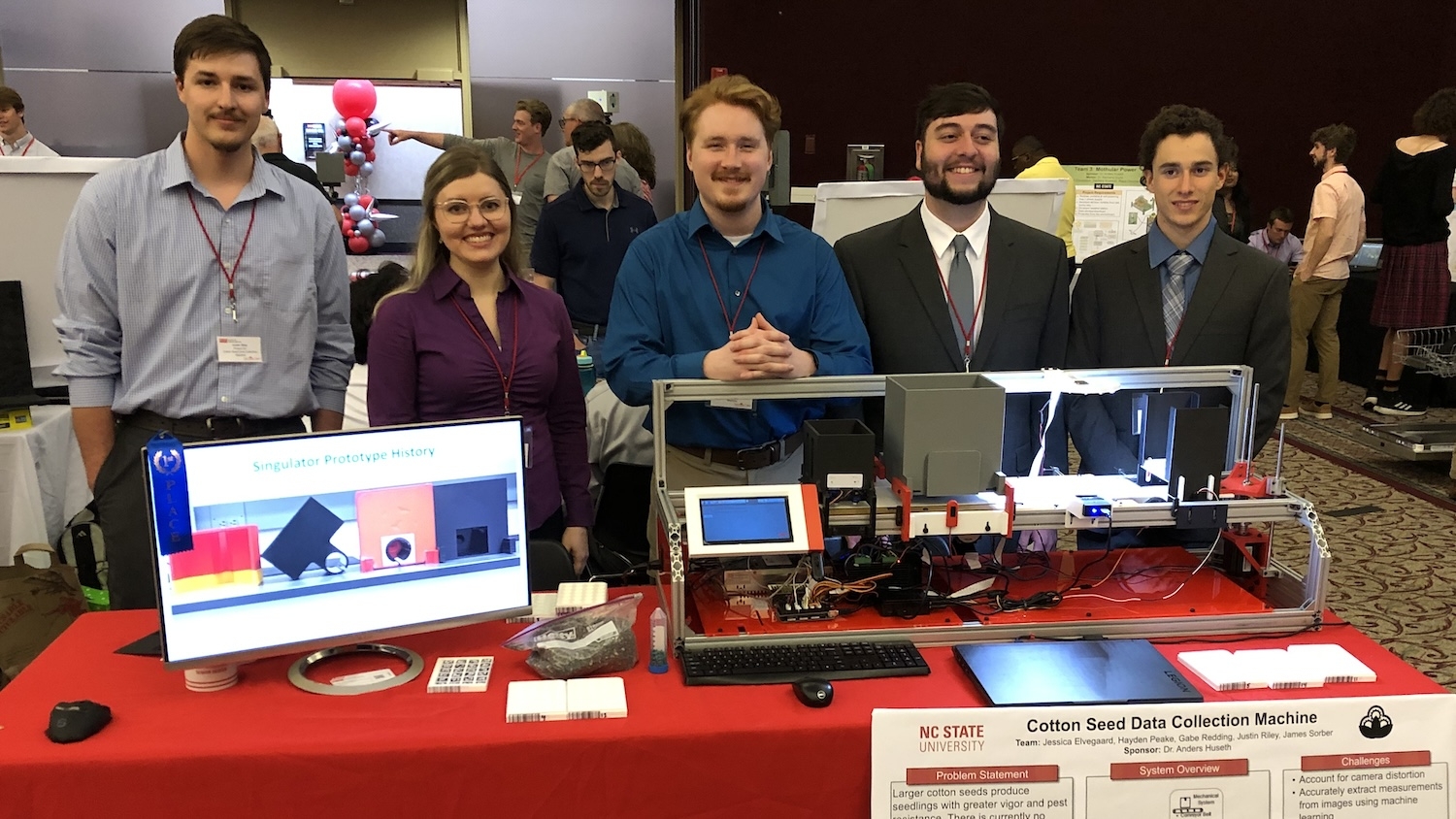NC Solar Center trains educators on solar technologies

-from the NC Solar Center
Thirty-nine community college and technical high school instructors from Virginia, Maryland, South Carolina and North Carolina converged in Raleigh in June to take part in a five-year, U.S. Department of Energy funded train-the-trainer program on solar technologies. Administered by the NC Solar Center (NCSC) at NC State University, the Southern Mid-Atlantic Provider of Solar Instructor Training (SMAPSIT) is a program that aims to address two of the main barriers in accelerating the development of the solar industry: a) quality trainers in solar technologies at community colleges and other local educational institutions, and b) standardized curricula and teaching materials for trainers.
To build a pool of quality local trainers, the Solar Center recruited the help of community college offices from the five southern mid-Atlantic jurisdictions of Maryland, the District of Columbia, Virginia and North and South Carolina to identify their best instructors who would teach photovoltaics (PV) or solar heating and cooling (SHC). From over 60 applications, only 40 instructors were chosen to fill the 20 seats allocated for the PV and the SHC workshops.
Each of the workshops spanned two weeks to delve deep into the technology, installation and trouble-shooting techniques of PV or SHC, developing a solar curriculum, and the intricacies of national and local solar policies and solar financial modeling. The two-week PV workshop was held from June 7th – 18th, while the SHC workshop was held on June 14th – 25th. Both workshops were held at NC State University’s Jane S. McKimmon Center and NCSC facilities in Raleigh.
Trained instructors in PV had to pass the North American Board of Certified Energy Practitioners (NABCEP) PV Entry-Level Exam, while SHC workshop instructors had to pass the NC Solar Center’s Solar Thermal Entry-Level Exam based largely on the NABCEP’s solar thermal certification exam’s learning objectives task analysis. After receiving their certificates, successful trained instructors are expected to develop and submit their curriculum to the Solar Center, become a leader in solar education programs in their local education institution, provide mentoring to future candidates, provide the Solar Center with updated metrics on their new solar course and disseminate information about the SMAPSIT program at a state conference.
In return, the Solar Center will provide a financial modeling software program for SMAPSIT states, online tools for the trained instructors and access to internship opportunities for their students to get real- world solar industry experience.
“My 80 hours of solar thermal training recently completed at NCSU could not have been timelier,” says Michael Partyka, Associate Professor at the College of the Albemarle. “This training is truly the tip of the spear as we transform from a fossil-fuel based economy to one of sustainable renewable resources such as solar thermal.”
“One of the goals is to ensure that community college instructors and technical high school teachers are provided the tools, resources and curricula to provide quality instruction in the classroom and in turn produce the highest standards for the solar industry. There are nine centers nationally working together to establish standardized curricula and best practices as we move forward in solar technologies and programs,” said Dr. Pam Carpenter who works on renewable energy technologies and science, technology, engineering, and mathematics (STEM) education at NCSC. She serves as the principal investigator coordinating the overall project.
“This training experience was designed to be comprehensive so that the instructors, in the role of students, would walk away not only with a wealth of theoretical and practical technical knowledge, but an introduction to the policies, incentives and financial models that sculpt the solar market, as well as, and perhaps most importantly, a thorough exploration of how to develop curriculum effectively for their own students,” stated Maria O’Farrell, program manager for the Solar Center’s training program. She provides her expertise in renewable energy technologies and green building curriculum design as director of the NCSC training program for the SMAPSIT project.
The SMAPSIT program was developed and is being supported by collaborations with SunPower, Johnson Controls, Maryland-DC-Virginia chapter of the Solar Energy Industrial Association and community college offices of the participating states. Economic Development support is also provided by the NC State University Office of Extension, Engagement and Economic Development.
Media Contact:
Shannon Helm, NC Solar Center, 919-515-0353 or shannon_helm@ncsu.edu


